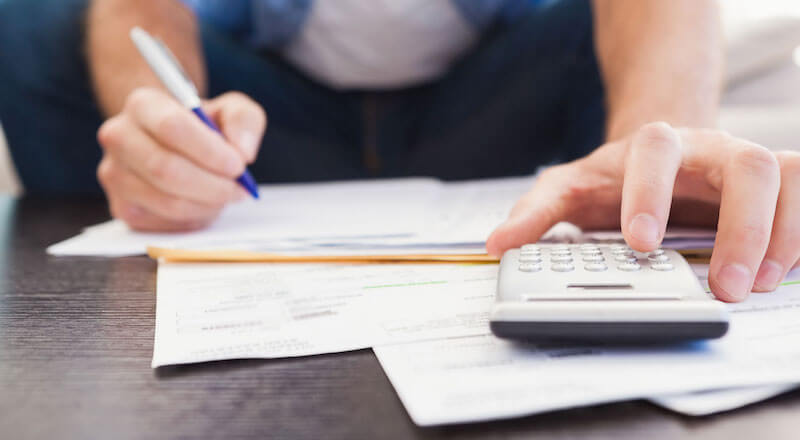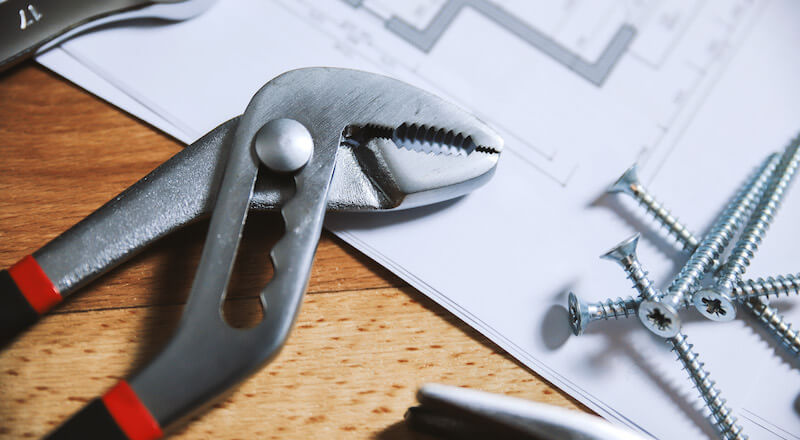If you are a foreign-income earner or non-resident (even a citizen) you are allowed to buy property in Canada. This includes purchasing a home in British Columbia, even if you don’t live here most of the time. This is thanks to foreign-income mortgages and non-resident mortgages, which many banks and lenders offer.
Of course, there are several rules to follow, and plenty to know about this process. We would advise you to learn as much as you can about it, before embarking on a home hunt as a foreign resident.
The easiest way to find out whether your situation makes you suitable for a non-resident mortgage in B.C. or the rest of Canada, is to speak with a local mortgage broker. Our mortgage broker (in Richmond, B.C.) can gather details from you, and advise on the next steps to get you closer to owning foreign property.
You don’t have to be physically located in British Columbia, Canada (nor in Richmond) to get this initial advice. We can have a virtual meeting, and continue virtually for most of the mortgage application process.
Mortgage brokers often work for free in Canada! You have nothing to lose by getting in touch!
Contact us today!
Email: simon@bcmortgagesolutions.ca
Tel: 604-495-8787
Cell: 778-929-3678
If you plan to live in Canada in the near future, click here for information about ‘new to Canada’ mortgages.
Below, we explain some important information you’ll want to know before applying for a non-resident mortgage, or attempting to buy a property in Canada with foreign income.
How much of a down payment will I need to purchase a property in Canada as a non-resident?
Generally speaking, foreign residents should expect to pay about 35% of their own resources as a down payment on a property in Canada. This comes to a 65% Loan-to-Value (LTV) ratio. It can not be borrowed or gifted to you.
Read moreThat said, this percentage can change based on certain conditions.
For example, if you are a U.S. citizen, you may be eligible for an 80% LTV (i.e. a 20% downpayment).
If you are buying a property worth more than $1M, a bank may offer you a mortgage requiring a lower down payment. They will decide this on a case-by-case basis.
With all that said, it’s important to know that buying a home in Canada is not without taxes, costs and fees that are in addition to the down payment itself. These additions don’t go towards the property’s value. They are out-of-pocket expenses.
We will explain these below.
Do foreigners pay more than residents to buy property in British Columbia?
In short, yes they do. They don’t pay more for the purchase price of the property. Also, some of the fees and taxes are the same as they are for residents. But foreigners do pay more in taxes, and sometimes, more in fees to their mortgage lender.
Read moreClick an item below to expand its details.
The fees (i.e.“closing costs”) that apply to all property purchases in British Columbia (and most of Canada) include:
- Property transfer tax. This can be between 1 – 3% of the property’s fair market value, depending on the value of the property you want to purchase. Learn more about the B.C. rates, here.
- Goods and services tax (GST). This comes to 5% of the purchase price of newly-built properties. It does not apply to previously-owned properties. Sometimes, the builder offers to pay this tax.
- Lawyer fee. Services to review, prepare and give advice on contracts regarding the property sale (such as conveyancing documents, mortgage agreements, etc.) can cost between $1,000 to $3,000 or so. This is required for the transfer of the property into your name.
- Title insurance. This can come to roughly $225 – $400, depending on the property’s value. This is required by some lenders as a security against fraud. It is a one-time purchase (i.e. no annual premiums apply).
- Survey certificate. This can come to roughly $350+ depending on the property, if the seller can not provide it for you. It can sometimes be used in place of title insurance (though this is not advised, since title insurance provides added protections). This certificate ensures the property is not violating local laws.
- Property appraisal fee. This can come to roughly $300 – $1,000+ depending on the property details, and must be done by a professional. A mortgage lender requires this to evaluate and grant a mortgage loan.
- Building or home inspection fee. This can cost $375 – $1,000+ depending on the property details. It is performed by a professional. This is optional, but HIGHLY advised.
- Home insurance. This is required, and can come to roughly $50 – $100+ per month, depending on the property, and whether it will be rented out, vacant or occupied by the owner.
- Prorated property tax and utility bills. This applies if the seller has paid these fees for the year. You will need to reimburse them on a prorated basis. These fees then recur every year thereafter.
In addition to the above, foreign buyers must also pay:
- The “Additional property transfer tax for foreign entities and taxable trustees,” at the provincial level. This is a 20% additional tax on the fair market value of the property. It applies to residential properties, or residential portions of a property (such as part of a large acreage). Some exemptions apply if the property is located in certain areas. Learn more here.
- The “speculation and vacancy tax,” at the provincial level, if the property is not being occupied most of the year. The rates and rules of this tax can change from time-to-time but generally range from 0.5% to 2%, depending on your situation. Learn more here.
- The Vancouver Empty Homes Tax, if the property is in the City of Vancouver, and is not being occupied most of the year. The rates and rules on this tax can also change from time to time, but generally come in at about 3% (as of 2021). Learn more here.
Note: The speculation and vacancy tax, and the Vancouver Empty Homes Tax, apply when a home is not being lived in for at least 6 months of the year, and for 30 consecutive days at a time. Some exemptions apply. Long-term rentals are allowed in order to bypass this tax. Using your foreign property as a vacation rental would not exempt you from this tax.
Then, there are the bank rules, rates and fees to consider. A foreign property buyer in Canada should be mindful that:
- Banks may impose higher interest rates on foreign borrowers. These rates can get even higher if negotiating less than 35% as a downpayment.
- Amortization periods to repay the mortgage can not exceed 25 years.
- Home equity lines of credit are not eligible for foreign residents (i.e. accessing equity in the property to use as cash is not possible).
- Refinancing to lower mortgage rates (at a later date) is not open to foreign residents.
- Each bank may have a limit to the number of properties they will finance for a foreign buyer.
While these fees seem like a lot, this does not totally discourage foreign investors from buying property in Canada with non-resident mortgages. There are clearly still benefits to doing so. Speaking with a local mortgage broker can help you better understand the potential pay off for your financial situation.
Contact us for more information:
Email: simon@bcmortgagesolutions.ca
Tel: 604-495-8787
Cell: 778-929-3678
Can I earn real estate investment income or rental income from my Canadian property if I am a non-resident?
Yes, non-residents are allowed to earn rental income from properties they own in Canada. However, this brings up more taxes and rules to be fully aware of, before becoming a landlord in this country.
Read moreForeign residents who earn income in Canada must file and pay taxes with the Canada Revenue Agency, just like residents. These taxes are determined by laws in the Income Tax Act. Rental income counts as taxable income in Canada.
If you are a resident of the U.S., or another country in treaty with Canada, you may not need to pay taxes in both countries. To confirm this, you will need to speak with an accountant or lawyer about your situation.
When it comes to earning money from foreign-owned property in Canada, at least two tax rules will apply. They are:
Non-resident rental income tax
This tax can come to 25% of the gross rental payments earned.
There are some ways to reduce this amount, if you work with a professional property manager, and can claim allowable expenses towards the property.
However, the rules and rates can change from time to time. It’s best to speak with a qualified accountant or lawyer for the most up-to-date information.
Capital gains tax withholding
In Canada, when capital property is disposed of (i.e. sold), a capital gains tax is applied. This tax is calculated by adding 50% of the profit from the property to your reported, taxable income. This same calculation is used for residents and non-residents.
However, a non-resident must pay this tax before closing the sale of the property. But, this process requires a “clearance certificate” from the Canada Revenue Agency before it can move forward.
The certificate must be handed to the buyer to ensure that tax is being paid on the property.
Until the certificate is obtained, between 25% – 50% of the purchase price is withheld in trust by a lawyer.
In other words, the buyer hands the money to a lawyer, and the lawyer holds it until the government releases the clearance certificate.
Once obtained, the tax owing is paid to the government immediately. The seller (that’s you), receives anything leftover.
Real estate agent commissions
In Canada, the seller of a home pays the real estate agent commissions. This will be an out-of-pocket expense. It covers the commissions for both your own real estate agent, and the buyer’s real estate agent.
Who is considered a non-resident in Canada, when it comes to buying property?
According to the Government of Canada, a non-resident can refer to a foreign national, or a Canadian citizen. A resident of Canada lives in Canada for at least 6 months of the year. Residents and non-residents may, or may not, file taxes in Canada (depending on if they earn income in this country).
Read moreHowever, when it comes to foreign-income mortgages, most lenders are primarily concerned with whether or not a non-resident is earning income in Canada. They also want to know that this person is filing and paying taxes in Canada. Whether a person lives in Canada for 6 months out of the year is not their focus.
BUT – and this is important – there are two additional factors to consider:
- Lenders can each have their own definition of what constitutes a resident of Canada.
- Laws and regulations change frequently. Lately, they are getting more strict with regards to how banks handle their loan procedures.
Also note that foreign-income mortgages are different than ‘new to Canada’ mortgages.
This brings us to our next question…
Do I need to be physically present to get a mortgage and buy a home in Canada?
In Canada, most of the home-buying process, including the mortgage application, can be done virtually these days.
However, most reputable mortgage lenders (especially Canadian banks, which are regulated by the government), will require you to be in person for specific portions of the process.
Read moreFirstly, you will need a Canadian bank account to be able to purchase a home in Canada. This is where the funds for your down payment and closing costs should be held and paid from. You should have sufficient funds in this bank account for at least 30 days before buying a home as a non-resident.
To open this bank account, you will need to present your photo ID in-person.
Also, some banks require forms to be signed in-person before proceeding with a wire transfer. This will be important to sort out, since – as mentioned above – your down payment and closing costs need to be in your account for at least 30 days before buying a home.
Some banks also require that your real estate lawyer has met you in person. They need proof of this before they will approve your application for a mortgage.
Finally, signing paperwork (i.e. closing documents) to transfer the property into your name can require an in-person signature.
With all of the above said, some banks and lenders can be more lenient. The best way to find out what parts of your home buying process will require you to be in Canada, is to speak with a mortgage broker. Once we know the details of your situation, we can advise you further.
Contact us for a consultation!
Email: simon@bcmortgagesolutions.ca
Tel: 604-495-8787
Cell: 778-929-3678
What do I need to include in my non-resident mortgage application, to buy property in Canada?
Your mortgage broker will guide you with regards to specific items that you should include in your non-resident mortgage application. These can change from case-to-case.
However, for most foreign-income mortgages, it is standard to include:
Read moreClick an item below to expand its details.
Your credit score report or banker’s reference letter
In Canada, a credit score confirms your ability to pay bills and debts on time, based on historical transactions you’ve made. If you do not have this, your current banker, in your resident country, can write a reference letter for you.
Your government-issued identity documents
You will need at least two pieces of photo ID.
Your proof of income
If you earn income in Canada, you should include your Notice of Assessment (NOA) from your tax return. You’ll also want to include pay stubs and employment letters. You can use similar, but equally authoritative, documents from your resident country.
Your debts and assets (personal net worth statement)
This should include proof of everything you own and owe. For example, other properties, vehicles, businesses, lines of credit, loans, alimony or child support payments, credit card debt, and so on.
Your bank statements
Foreign-income mortgage applicants must show that they are using non-borrowed and non-gifted resources to be able to purchase a property in Canada. This is done by showing mortgage lenders a three-month history of transactions from your bank accounts – both in your home country and in Canada.
Your proof of funds for a down payment and closing costs
As mentioned above, you will need to have your down payment and closing costs in your Canadian bank account for at least 30 days before being able to buy a home in Canada. The lender will want to see proof of these funds with your application.
Will buying a home in Canada help me secure citizenship?
Whether or not you own a home in Canada will not be the determining factor of whether you’ll be granted citizenship.
Read moreHowever, it’s possible that your investment into property in Canada will increase your net worth (depending on how the market fares). This may be a positive factor in your application to become a Canadian citizen.
Nonetheless, it’s best to speak with an immigration lawyer about the details of this question. We are not an authoritative source on this subject. We can only help you with your mortgage application process, if you are hoping to buy a home in Canada with foreign income.
Let us help you with non-resident and foreign-income mortgages in B.C., Canada; we’ll reduce the complexity, and advise on your next steps to home ownership in this country!
If the information above seemed overwhelming, we understand. That’s what we’re here for, as British Columbia mortgage brokers. In fact, there is more to know about this subject, and it is our job to be versed in the rules of non-resident and foreign-income mortgages in Canada.
Since some of the above may, or may not, apply to you, it’s best to speak with a mortgage broker if you are looking to finance your home purchase in Canada (including in B.C. or Western Canada).
Most of the time, mortgage brokers work for free in Canada. Their commission is paid for by the lenders who finance home purchases. So, you have nothing to lose by contacting us for a free consultation.
We’ll go over your case, and let you know what actions we think you should take, to be able to buy a property here.
Contact us today!
Email: simon@bcmortgagesolutions.ca
Tel: 604-495-8787
Cell: 778-929-3678



